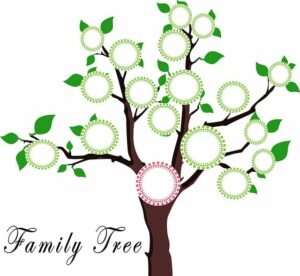
Introduction
The vast majority of individuals who seek therapy often opt for individual therapy versus couple or family. And yet, most of our time in therapy is spent attempting to decode and fix the painful parts of our relationships. I get it, the idea of doing therapy with your parents can understandably can feel scary, or in the least uncomfortable. However, even when a family member might be interested or even attending therapy for the same issue you are, we still default to solo therapy.
It’s Not All You
Let’s talk about the bend to view mental illness, and wellness, as an individual problem, something that starts and ends with the individual. Sure, we can agree that trauma, neglect, or our childhood experiences has affected what ails us today but family therapy takes this one step further by viewing our anxiety, depression, addiction, you name it, is an ongoing symptom of a family or relationship dynamic.
For example, imagine someone who absorbs the anxiety of the family by placating, fixing, and mediating in the family. Now as an adult, this dynamic still plays out in their family (as well as in every other domain of life). Certainly, individual therapy can help us learn better coping strategies for anxiety, however, greater and more meaningful change happens when the system (couple or family) is part of the process. The problem is the anxiety of the family is displaced in this individual and they will go back into the family system able to process and cope better with the anxiety but likely will need therapy again as the family will unknowingly bend them back into the role they were in.
In this common situation, the family therapist would help establish emotional boundaries so each family member experiences the “uncomfortability” of the family anxiety, rather than one absorbing it, and by doing so creates an impetus for change in each member. The family as a whole shifts, thus the anxiety (in this example) substantially shifts for the individual.
Conclusion
It’s often said in therapy that “Every behavior makes sense in the context they were created in”. Family therapy attempts to know the context and change the context. Often therapy is attempting to heal the wounds that originated in relationships, however few of us realize it is IN relationships that we heal best. For countless reasons family therapy isn’t always possible, however, even having this lens that mental health is co-created and co-maintained by the relational systems we inhabit can help orient you when you’re working on boundaries and emotional regulation. Contact us to set up an appointment for family therapy and begin your healing journey today.


Leave a Reply